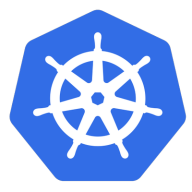

Kubernetes and Microsoft Defender for Cloud operate in the realm of cloud-based solutions, focusing respectively on container orchestration and multi-cloud security. While Kubernetes is preferred for its scalability and automation benefits, Microsoft Defender for Cloud distinguishes itself with its robust security and comprehensive compliance management.
Features: Kubernetes offers remarkable scalability and automation, making it ideal for deploying microservices efficiently. It boasts flexibility across platforms and seamless integration with cloud providers like AWS and Google Cloud. Microsoft Defender for Cloud provides comprehensive security features and compliance management tailored for multi-cloud environments, ensuring robust protection and regulatory compliance.
Room for Improvement: Kubernetes could improve its complex setup and enhance its dashboards and user interface. It also heavily relies on community support. Microsoft Defender for Cloud requires better documentation, improvement in alert management, and more intuitive pricing structures. Enhancements in these areas could significantly optimize user experience and functionality.
Ease of Deployment and Customer Service: Kubernetes is noted for its flexibility in deployment across cloud environments but demands significant technical expertise, relying on community support. Microsoft Defender for Cloud offers integrated support within the Azure ecosystem, aiming at seamless operations in hybrid and public cloud settings. However, its customer service is described as slow and complex.
Pricing and ROI: Kubernetes, being open-source, has no licensing fees, offering cost advantages for large-scale deployments despite operational overheads. Its scalability can provide a strong return on investment. Microsoft Defender for Cloud is perceived as more costly but justifies its price with tailored security offerings. Its flexible licensing, especially in conjunction with other Microsoft services, is appreciated for its perceived affordability.
We receive revenue and returns from its deployment due to improved services and applications.
I have seen a return on investment, and the metrics in return for the investment are very fast.
Defender proactively indexes and analyzes documents, identifying potential threats even when inactive, enhancing preventative security.
Identifying potential vulnerabilities has helped us avoid costly data losses.
Compared to not having Microsoft Defender for Cloud in place, we definitely saw an advantage by not having downtime due to a security threat.
The application is stable, and I seldom require support.
Since security is critical, we prefer a quicker response time.
The support team was very responsive to queries.
They understand their product, but much like us, they struggle with the finer details, especially with new features.
Kubernetes is highly scalable, earning a rating of eight out of ten.
By using horizontal pod autoscalers, Kubernetes automatically adjusts the number of pods based on CPU, memory usage, or other metrics.
Kubernetes is a scalable platform, which is why we are using it.
As we have reduced our on-premises infrastructure, it is about how we can migrate workloads to the cloud to make it easier, and then having everything fully encompassed and secured within that area makes it much easier for us to scale as needed and grow.
We are using infrastructure as a code, so we do not have any scalability issues with Microsoft Defender for Cloud implementation because our cloud automatically does it.
It has multiple licenses and features, covering infrastructures from a hundred to five hundred virtual machines, without any issues.
Our organization performs robust testing before sending changes to production, ensuring the stability of Kubernetes in live environments.
Kubernetes offers high stability, allowing for easy scaling of ports and containers.
If any containers take more space, sometimes the cluster goes down.
Defender's stability has been flawless for us.
Microsoft Defender for Cloud is very stable.
Microsoft sometimes changes settings or configurations without transparency.
Improved documentation would help in gaining scalable knowledge and making it more understandable.
After the upgrade, some pods were not up as expected, leading to downtime.
Although we face issues when migrating to new versions of Kubernetes, such as misunderstandings on using new features or integration with proxy services, these issues can be addressed with proper preparation.
Microsoft, in general, could significantly improve its communication and support.
It would be beneficial to streamline recommendations to avoid unnecessary alerts and to refine the severity of alerts based on specific environments or environmental attributes.
The artificial intelligence features could be expanded to allow the system to autonomously manage security issues without needing intervention from admins.
Since we use Kubernetes on-premises, the costs are related to our expertise and the personnel we hire.
the setup costs are high.
Security has essentially no cost when compared to the cost of a breach.
Every time we consider expanding usage, we carefully evaluate the necessity due to cost concerns.
We appreciate the licensing approach based on employee count rather than a big enterprise license.
Kubernetes also offers rollback control and auto-scaling capabilities, which are crucial for maintaining an application's availability even if nodes or pods go down.
For us, having fast storage classes is very important.
The most valuable feature of Kubernetes is its support for load balancing.
The most valuable feature for me is the variety of APIs available.
This feature significantly aids in threat detection and enhances the user experience by streamlining security management.
The most valuable feature is the recommendations provided on how to improve security.
| Product | Market Share (%) |
|---|---|
| Kubernetes | 6.1% |
| Microsoft Defender for Cloud | 1.3% |
| Other | 92.6% |


| Company Size | Count |
|---|---|
| Small Business | 25 |
| Midsize Enterprise | 10 |
| Large Enterprise | 47 |
| Company Size | Count |
|---|---|
| Small Business | 27 |
| Midsize Enterprise | 10 |
| Large Enterprise | 49 |
Kubernetes (K8s) is an open-source system for automating deployment, scaling, and management of containerized applications.
It groups containers that make up an application into logical units for easy management and discovery. Kubernetes builds upon 15 years of experience of running production workloads at Google, combined with best-of-breed ideas and practices from the community.
Microsoft Defender for Cloud is a comprehensive security solution that provides advanced threat protection for cloud workloads. It offers real-time visibility into the security posture of cloud environments, enabling organizations to quickly identify and respond to potential threats. With its advanced machine learning capabilities, Microsoft Defender for Cloud can detect and block sophisticated attacks, including zero-day exploits and fileless malware.
The solution also provides automated remediation capabilities, allowing security teams to quickly and easily respond to security incidents. With Microsoft Defender for Cloud, organizations can ensure the security and compliance of their cloud workloads, while reducing the burden on their security teams.
We monitor all Container Management reviews to prevent fraudulent reviews and keep review quality high. We do not post reviews by company employees or direct competitors. We validate each review for authenticity via cross-reference with LinkedIn, and personal follow-up with the reviewer when necessary.